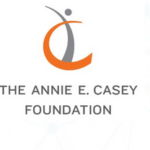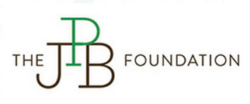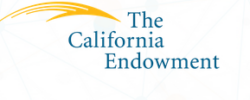As place-based efforts continue to expand, the relationship between philanthropy and community must evolve and change. For community change efforts to be successful, the people who live there must be central to the design and implementation because place is about the people who live and ultimately thrive there. The time is ripe to rethink the role of funders and in supporting community resilience and cohesion as a part of community power building.
On September 19-21, 2016, Neighborhood Funders Group and the Aspen Institute Forum for Community Solutions hosted a three-day funders’ convening on place-based philanthropy. This gathering in Aspen, Colorado, provided an in-depth exploration of best practices for philanthropy’s role in improving the well-being of people and communities.
This convening was a space for local, regional and national funders to have the opportunity to learn about practices, policies and models for working in a collaborative way to grow funders and community organizations that work on the ground, with learnings from past successes and failures of funder peers. We sought to gather a broad range of perspectives to foster a learning exchange regarding behaviors, content, and practices that make community change efforts more productive and collaborative.
Together we continue to develop our learning community and agenda to explore community change and growth. As a part of next steps, we discussed where to next take the conversation. What will it take to transform the power paradigm between grantees and funders for efforts supporting resident engagement? What does a “successful community” look like, using the resiliency frame? What does it look like when a community makes that transition? What are the qualities?
Conference Reflections
- Dennis Quirin, President of Neighborhood Funders Group, and Steve Patrick, Executive Director and Vice President of the Aspen Institute Forum for Community Solutions, share their top takeaways from the convening.
- Angela Brown, Director of Programs at The Hyams Foundation, reflects on the variety of grantmaking approaches in the field and the importance of working with communities on long-term strategies.
- Raquel Gutierrez, Director of Strategic Learning & Practice at Vitalyst Health Foundation, reflects on where the culture in foundations needs to evolve to match developments in the field.
- Dawn Phillips, Executive Director of the Right to the City Alliance and Program Director of Causa Justa :: Just Cause, outlines an agenda for place-based change that acknowledges our past and looks to local solutions to guide the future.
- Simran Noor, Vice President of Policy & Programs at Center for Social Inclusion, shares three lessons that funders should build on to support sustainable community change.
- Lisa Ranghelli, Senior Director of Assessment and Special Projects at the National Committee for Responsive Philanthropy (NCRP), explores the concept of resilience and the need for philanthropy to embrace critical community feedback.
Videos
Opening Plenary
Communities all across the country are reaching a tipping point in response to long-term historical injustices. It can be in reaction to a number of activities including natural disaster, police violence, or failing infrastructure. Communities are building capacity and power to help residents address the impact of these activities to achieve their vision of resiliency and sustainability. Engaging residents in leadership development, advocacy, and organizing can lead to authentic solutions that foster sustainable change. In this plenary, community and philanthropic leaders will share their experience with community led efforts to build resilience and power that resides in place, reflecting on how the outcomes of community power building are reflected in reactions to times of intense difficulty and dramatic events.
- Sarah Eagle Heart, CEO, Native Americans in Philanthropy
- Isaiah Oliver, Vice President of Community Impact, Community Foundation of Greater Flint
- Leticia Peguero, Executive Director, Andrus Family Fund
- Takema Robinson, Principal, Converge – New Orleans
- Danielle Torain, J.D., Senior Associate, Baltimore Civic Site, The Annie E. Casey Foundation
Despite the recent surge of divisive rhetoric in the news, low-income communities are still joining together in the uphill struggle to improve their neighborhoods—especially African-Americans, Latinos, and other communities of color that are disproportionately burdened with adverse economic conditions. People across the country are working to address gentrification, wage stagnation, and the many other consequences of the increasing wealth gap.
This plenary will begin a critical dialogue about the challenges, strategic opportunities, and cutting-edge approaches to ensure low-income and working-class communities are economically resilient. We will highlight the strategic role philanthropy has played and need to continue to play to support the development of a robust and sustainable economy in three ways: encouraging business development and acceleration, fostering equitable economic development, and working to improve job quality and career pathways.
- Nwamaka Agbo, New Economy Innovation Fellow, Movement Strategy Center
- Denise Fairchild, Ph.D. President & CEO, Emerald Cities
- Jose Garcia, Program Officer, Surdna Foundation
- Dennis Quirin, President, Neighborhood Funders Group
- Ed Whitfield, Managing Director of the Fund for Democratic
Building resident power is the greatest long-term resource for community resiliency. Increasingly, place-based grantmakers are using and supporting strategies that inspire community members to become active participants, working together with other local stakeholders to construct stronger, more equitable communities. The plenary speakers will engage each other in dialogue across pairs of grantmakers and community leaders, to examine how solutions best fit community needs when they are identified and led by local residents, the meaningful role philanthropy can play, and the power dynamics that both funders and community residents must openly address.
- Gwyn Barley, Director of Community Partnerships & Grants, Colorado Trust
- Angela Brown, Director of Programs, The Hyams Foundation
- Raquel Guitierrez, Director, Strategic Learning and Practice, Vitalyst Health Foundation
- Lisa Owens, Executive Director, City Life Vida Urbana
- Theresa Trujillo, Community Partner, Southeast, CO, Colorado Trust
Closing Plenary
Short Talks were designed to share provocative ideas and generate conversation. Speakers will share strategies and issues that are on the horizon in community change efforts, then join together for a conversation with participants. Steve Patrick, Executive Director and Vice-President, Aspen Institute Forum for Community Solutions will moderate the question and answer session.
Joseph Larios, Program Director and Co-founder of Center for Neighborhood Leadership, Board Member of Vitalyst Health Foundation
As an incubator for social change, Center for Neighborhood Leadership provides curriculum and organizational support necessary to transform marginalized people into leaders with experience driving community development and public policy from within their own communities. Training includes core organizing skills, leadership in nonviolent social change movements, professional development, and project specific workshops.
F. Javier Torres, Director of National Grantmaking, ArtPlace America
Philanthropy and governmental systems have historically contributed to unintended (and intended) inequities in communities of all sizes across the US. Recognizing the challenge in achieving change at an individual scale, ArtPlace America (ArtPlace) was created as a ten-year collaboration among 16 foundations, 8 federal agencies, and 6 financial institutions to position arts and culture as a core sector of comprehensive community planning and development in order to strengthen the social, physical, and economic fabric of communities. With an approach that operates from the assumption that communities are innately resilient, this talk will present ArtPlace as a case study to share: a.) practical strategies for designing more equitable grantmaking programs and b.) share examples of how including arts and culture (at a variety of scales) can contribute to increasing local power while sustaining movements of resistance.
Program
To learn more about the plenaries and breakout sessions that were held at this convening, you can access the program here or visit the event website here.
Convening Sponsors
We would like to thank our sponsors for their generous support:
Additional support provided by:



